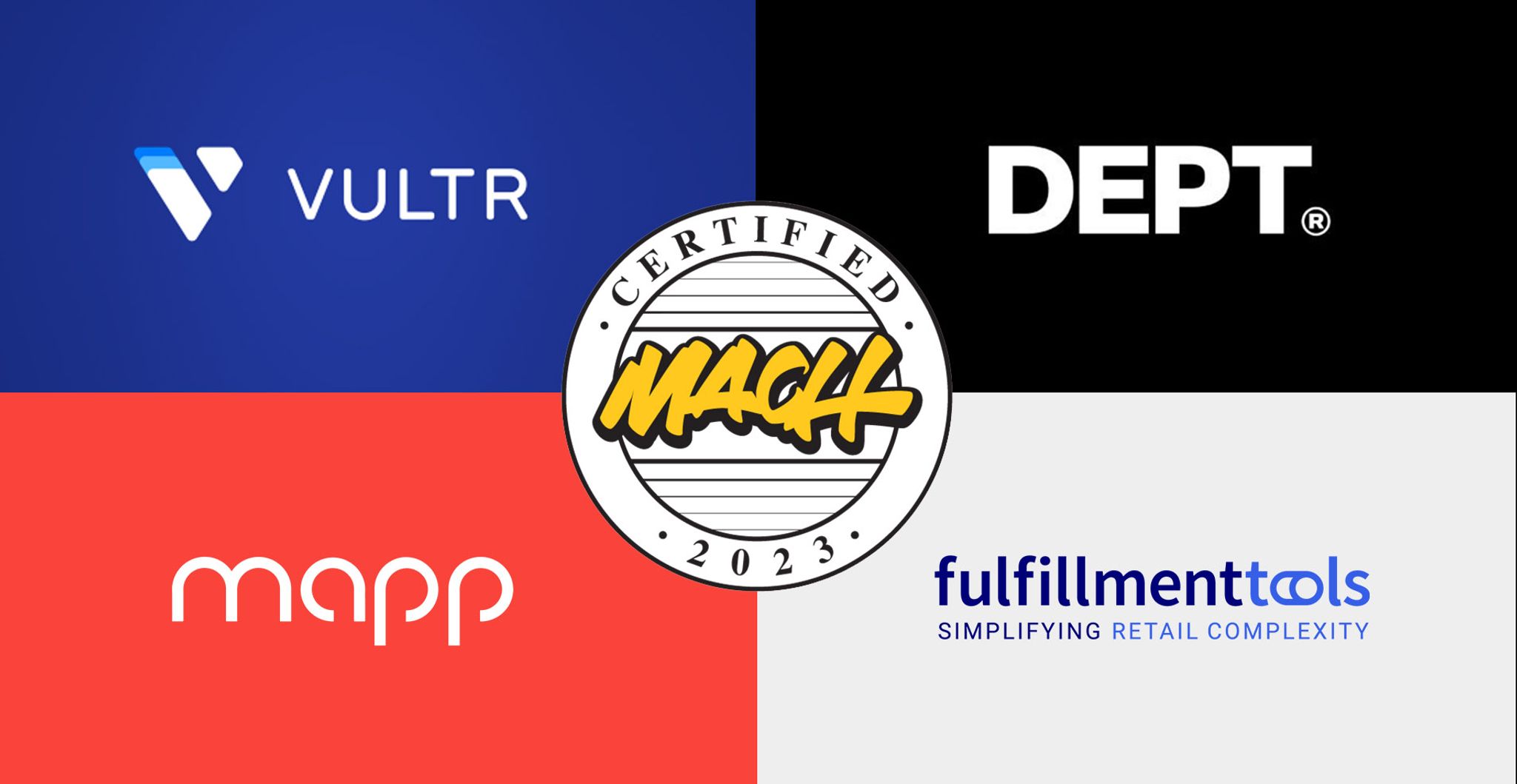MACH Alliance Adds Four New Members: Vultr, DEPT, Mapp and fulfillmenttools

No doubt about it: composable is hot, and the MACH Alliance is on fire.
This week, the heralded cabal announced the addition of four new members to its ranks: cloud platform Vultr, digital experience platform DEPT, and customer experience platforms Mapp and fulfillmenttools.
The latest batch brings the MACH Alliance's membership total to nearly 80 since its inception in 2020 – and reflects the rising demand for MACH (microservices, APIs, cloud, headless) and composable solutions across the market.
"2023 has already seen solid momentum for the MACH Alliance and for the continued embrace of MACH, overall," said Casper Rasmussen, MACH Alliance president. "DEPT, fulfillmenttools, Mapp and Vultr add yet more volume to our movement and more power to our voices as we continue to push for a new standard in enterprise tech. They share in our belief that a composable technology stack is the best way to deliver on today's customer expectations and to gain competitive edge over those still stuck in the weeds of legacy."
Here's a bit of detail about the newcomers:
Vultr: birds of prey that simplify the cloud
Founded in 2014 in West Palm Beach, Florida, Vultr is the flagship product of Constant. Vultr has helped over 1.5 million customers simplify their software infrastructure with advanced cloud deployments through 30 million servers across 17 global locations.
Constant has been on a roll since 2021 when it announced the closing of a $150 million credit facility from J.P. Morgan and Bank of America – including a $25 million uncommitted expansion option to accommodate future growth. Constant has used the capital to expand its global footprint of automated cloud infrastructure to serve its rapidly-growing customer base, further solidifying its leadership position in the independent cloud provider market.
Experience digital depth with DEPT
DEPT is a global digital agency specializing in marketing technology. The company was founded in 1996 and is headquartered in Amsterdam, with more than 30 international locations.
DEPT recently utilized a headless architecture (one of the core principles of MACH) as part of its "motion first" identity delivery for the 2022 MTV Video and Music Awards. DEPT's innovation helped merge both the physical and digital experiences of the VMAs utilizing one dynamic design distributed via a composable strategy.
Get customers on the Mapp
Mapp, an “insight-led” customer experience platform based in Berlin, combines data with artificial intelligence to help marketers connect with consumers.
Mapp uses AI to sort through massive amounts of data to help marketers predict customer behavior. Headless architecture through the Mapp Cloud helps marketers build an engagement strategy for customers, showing up when and where consumers are most likely to turn a nudge into a sale.
Fulfilling retail growth with fulfillmenttools
fulfillmenttools is a new(ish) company formed in 2020 as a spin-off of REWE Group digital. fulfillmenttools helps retailers and customers during every part of the fulfillment process leveraging composable and MACH-oriented strategies.
The platform – recognized by both Gartner and Forrester – prides itself on an omnichannel approach to fulfillment for B2B and B2C retailers, as well as D2C brands worldwide.
What's next for the MACH Alliance in 2023?
Along with a packed schedule of activities that includes multiple member events, the Alliance is planning a MACH Haus US Roadshow stop in Las Vegas during ShopTalk 2023. This follows an engaging MACH Haus session held this past January during the National Retail Federation (NRF) show in New York City.
While the year is still kicking off, many companies continue to debate whether a recession will rear its head in 2023. While economic conditions appear to be improving in some sectors, the tech landscape has experienced a blight of staggering layoffs – even in light of a U.S. jobs report showing unprecedented gains in January. While companies like Amazon, Google, Meta, and Salesforce are attributing these RIWs to a "spree of over-hiring" during the Covid-19 pandemic, it's clear that nothing is clear.
At a MACH Alliance Roundtable that CMS Critic covered in December, there was deep discussion around the potential for MACH and composable to meet the challenges of a coming economic retraction. Given shifting geopolitics and growing uncertainty, it's a safe bet that technology budgets will continue to be a key topic for Alliance members over the coming quarters – and how MACH can provide greater agility during these periods.
Since its founding in 2020, the MACH Alliance has grown into a consortium for innovation, steadily adding more members and specialized expertise to its community. As noted in our previous interview with Casper Rasmussen, education is a pivotal part of the program, and we can expect to see more investment in resources that promote the values and standards of MACH. From a customer perspective, these tools will further benefit their journey when selecting best-of-breed technologies from within the Alliance ecosystem to build their composable solutions.
One thing to be sure of: the MACH Alliance will continue to grow.